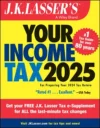5 Ways to Maximize Your Retirement Savings
According to the U.S. Census Bureau, the number of years spent in retirement is about 18, which assumes retirement at age 63 and a life expectancy from then to age 81. Will you have the money on hand to provide the kind of retirement you anticipate? The main way to have a financially-secure retirement is to optimize your retirement savings. Here are five ways to do this:
1. Contribute enough to your 401(k) to get an employer contribution
If you participate in a 401(k) plan, you can contribute up to a set amount annually (in 2018 the maximum is $18,500, or $24,500 if age 50 or older by the end of the year). In many plans, employers match a portion of employee contributions. The average company contribution is about 3% of pay, but employer contribution formulas vary considerably. If you find it financially difficult to contribute, check on the amount required to earn the maximum employer contribution; it’s free money you shouldn’t ignore.
2. Double up retirement savings with an IRA
If you contribute to a retirement plan at work, you may also be able to fund an IRA to create another source of retirement savings.
- For deductible contributions to a traditional IRA for 2018, your MAGI in 2018 must be below $101,000 for joint filers and qualifying widow(er)s, $63,000 for single filers and heads of households, or $189,000 for a spouse who is not an active participant but whose spouse is, in order to take the maximum deduction (for 2018 the deductible limit is $5,500, or $6,500 if age 50 or older by the end of the year).
- For after-tax contributions to a Roth IRA for 2018, your MAGI in 2018 must be below $189,000 for joint filers and qualifying widow(er)s, or $120,000 for single filers and heads of households, in order to make the maximum contribution (for 2018 the limit is $5,500, or $6,500 if age 50 or older by the end of the year).
3. Save on taxes
The less you pay in taxes, the more money you have for other things, including retirement savings within or outside of retirement plans. Some ways to save on taxes:
- Maximize salary deferral contributions to 401(k) and similar plans. The contributions are not subject to current income tax. The contribution limit for 2018 is listed in #1 above.
- Make deductible IRA contributions to save taxes now or Roth IRA contributions to save taxes later when you take distributions.
- Take a tax credit for making retirement contributions. If your MAGI is below set limits for 2018, you can not only enjoy the tax breaks listed above, but you can double your tax savings with a federal income tax credit.
4. Postpone collecting Social Security benefits
Each year you delay collecting Social Security benefits beyond your full retirement age (currently 66), you can earn an 8% credit. In other words, if you delay benefits until age 70, instead of at 66, you’ll get a 32%credit to increase annual benefits going forward.
5. Keep working to build up retirement savings
By continuing to work, you can use your earnings to increase your personal savings outside of a qualified retirement plan or IRA. For example, if you build up an investment portfolio featuring holdings that generate qualified dividends, you’ll be able to receive the dividends and pay a low tax on them. Depending on your taxable income, you pay only 15% or 20% on qualified dividends, or zero tax if your taxable income (including the dividends) is low enough.
Conclusion
The sooner you begin, and the more you stash away, the bigger your nest egg for retirement will be. This can ensure a financially comfortable retirement, no matter how long you live.



